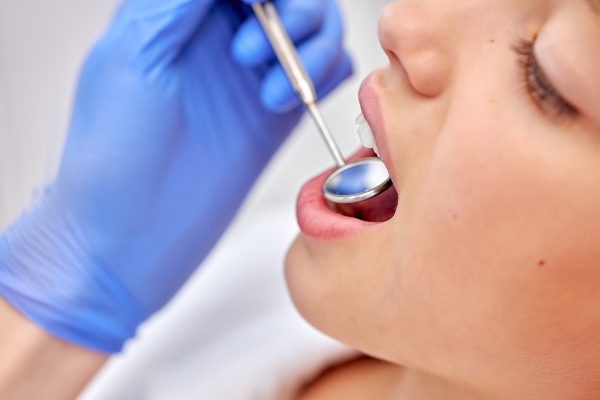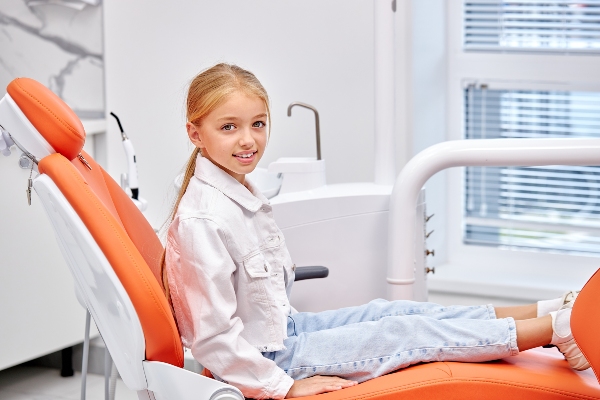 Visiting a pediatric dentistry office with your child ensures his or her future relationship with oral hygiene and dentists, in general. Whenever your child suffers from oral injuries, consider making an appointment with your pediatric dentist to uncover any underlying problems. For instance, injuries to the tongue and teeth could indicate a deeper jaw or tooth structure problem.
Visiting a pediatric dentistry office with your child ensures his or her future relationship with oral hygiene and dentists, in general. Whenever your child suffers from oral injuries, consider making an appointment with your pediatric dentist to uncover any underlying problems. For instance, injuries to the tongue and teeth could indicate a deeper jaw or tooth structure problem.
Why is your child biting his or her tongue or lip?
There are various reasons a child may bite his or her lip. Everyone bites their tongue sometimes, but if it becomes a consistent problem, there is usually an underlying condition to blame. If your child often bites their lip, it could indicate an issue with the jaw or teeth.
Malocclusion
Malocclusion refers to the teeth not aligning properly in the mouth. When your child's teeth do not line up correctly, it becomes difficult to chew. He or she may have to chew harder or find it difficult to pronounce words correctly. There are different types of malocclusion, with there being three standard categories.
Class III malocclusion
If your child's lower teeth stick out more than the upper teeth, resulting in an underbite, your child may have Class III malocclusion. Class III can also include a crossbite with overlapping lower and upper teeth.
Within Class III, there are types of malocclusion. In Type I, kids have good alignment but an abnormal arch. Type II has good upper front teeth alignment, but the lower teeth tilt toward the tongue. In Type III, the upper teeth lean in the direction of the tongue, and the lower teeth are aligned as they should be.
Class II malocclusion
In pediatric dentistry, a Class II malocclusion is where the upper teeth stick out past the lower teeth, causing an overbite. In Type I, your child's teeth angle toward the lips, often leading to lip biting when eating. In Type II, on the other hand, the central incisors lean toward the tongue, causing damage to the tongue.
Class I malocclusion
Class I involves an overlap. This is where the upper teeth stick over the lower teeth. In Class I, the bite is normal, aside from the overlap. Often, teeth overlap because of extended bottle use or thumb-sucking in childhood. For the three types of Class I malocclusion, children can have teeth that angle toward the tongue in type I. Type II involves narrow arches with upper teeth sticking out but lower teeth angling toward the tongue. In Type III, the front teeth angle in the direction of the tongue.
Jaw misalignment
There are various reasons that a child's jaw may have improper alignment. This can result from developmental issues, teeth that are too big for the mouth, early loss of baby teeth, or different size upper and lower jaws. Through an examination, professionals can indicate jaw alignment issues that may lead to tongue and lip biting.
Conclusion
It is normal for a child or adult to bite his or her tongue or lips accidentally. However, it could point to an underlying condition when it becomes a habit or if your child risks damaging his or her tongue and lips because of biting. Children who consistently bite their tongue or lip may require pediatric dentistry treatment.
Request an appointment or call Hudson Valley Pediatric Dentistry at 845-363-4177 for an appointment in our Middletown office.
Recent Posts
Cavity treatment for kids is essential for a child’s oral health. Dental decay can cause discomfort, causing the child to lose focus at school. It can even result in low self-esteem and malnutrition. Treating cavities can improve your child’s general health. Here are effective techniques for cavity treatment for kids.There are cases when fillings cannot…
Parents play a crucial role in their children's tooth care by ensuring their children get started on the right path to optimal dental health. This involves overseeing children's tooth care at home while also helping them develop healthy dental habits and ensuring they see a pediatric dentist regularly.Parents will need to keep their child's mouth…
Just like adults, children need preventive dental care — that is where pediatric dentistry comes in. Many parents believe that their child's teeth are healthy simply because their child is young. The truth is that oral health issues are as prevalent in kids as much as adults. Since they love sugary treats, the risk of…


